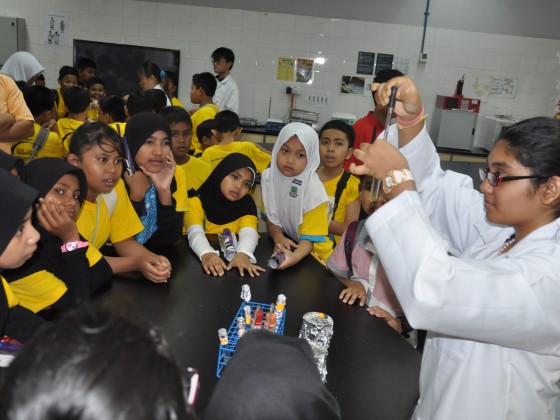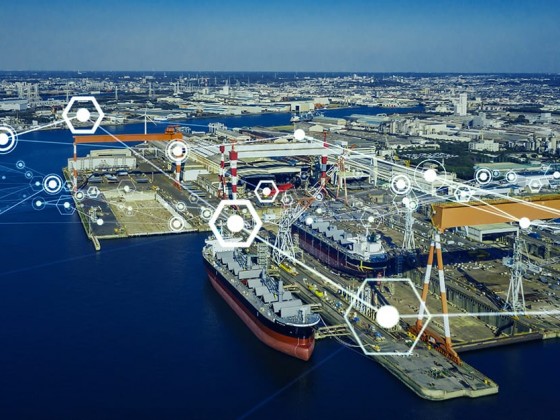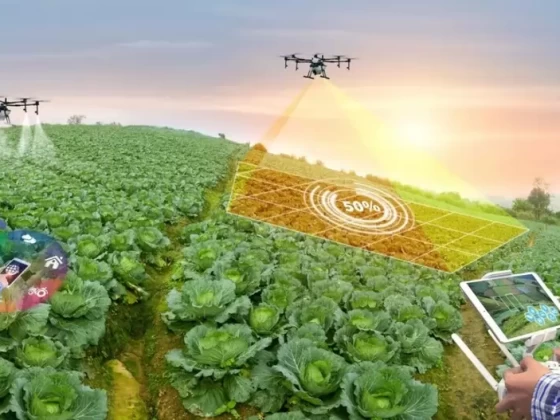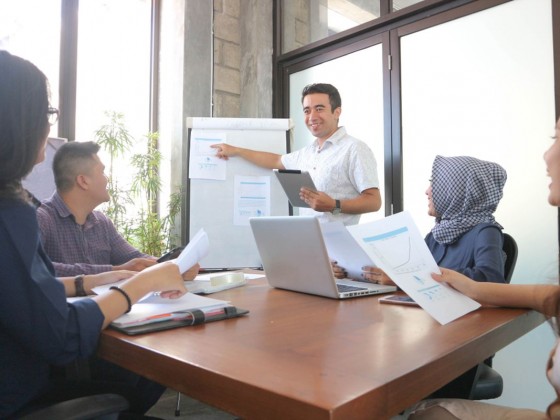by | Azmil Mohd Amin | azmil@might.org.my
The challenge to build a scenario of future unity in Malaysia is to develop a set of drivers that would determine and drive the nation towards unity and reconciliation.
In the effort to create these drivers two well-known unity initiatives – the Mont Fluer Unity Conference in South Africa and Columbia 1996/1997 Conference – were examined and analyzed.
The Mont Fluer Conference involved a broad mix of South African’s political, business and civil society leaders from both sides of the divide to discussed what was happening, what could happen and what could be done for the unity of the nation. The Columbian experience is slightly different as, apart from the political, business and civil society leaders, it brought warring factions to the conference table. Both these conferences produced exemplary results in building the unity in their respective countries.
However the appreciation of these drivers in Malaysian context would be somewhat different. Whilst the differences in South Africa involved the blacks and whites, and in Columbia was more of political affiliations, Malaysia has to deal with multiracial, multi-cultural, multi-lingual and multireligious society. Fortunately, unity and reconciliation amongst Malaysians has never escalated to the crisis point faced by other nations. However, lately the cracks are visible and some unpleasant noises are heard. These cracks and noises, if left unchecked, may lead to bigger problems in national unity.
MyForesight®, through multiple engagements with various stakeholders, has managed to identify issues and trends that may be the drivers for national unity in Malaysia. However, these drivers, apart from becoming the converging factors that bring the people together, could also be the cause for people to drift further apart.
Unity and Reconciliation Unity and reconciliation are interrelated. Whilst unity means being in agreement and working together or being joined together to form a unit, reconciliation is the process of making different ideas, facts, etc. to exist together without being opposed to each other. Unity and reconciliation is only achievable through absolute honesty amongst all parties that are involved.
In a multiracial, multi-cultural, multireligious and multilingual society as in Malaysia, it is of utmost important that the close-knitted relationship amongst its people is maintained and preserved, but also need to be developed and strengthened. Diversity is the strength of the nation.
This has been emphasized by our founding fathers when they formulated the Federal Constitution. Writers, scholars, researchers and analyzers of or national unity from both side of the political divide has invariably agreed that understanding of the constitution and Rukun Negara is one of the drivers towards national unity.
The Federal Constitution is the document that provides the most basic foundation and idealism of the country. Understanding of this founding document is quintessential in paving the way towards nation building.
Mohd. Hilmi Ramli, chairman of a youth think-tank known as Himpunan Keilmuan Muslim (HAKIM), insisted that the most important thing in shaping Malaysia’s future is by having an understanding of the founding document – the Federal Constitution. There is an urgent need for the society, particularly the younger generation, to be educated on the history of the nation as well as the founding documents. Discussions on nation building should be within this boundary and framework.
Aminuddin Yahya, Deputy President of Ikatan Muslimin Malaysia (ISMA), states that the unity of the nation is dependent on the unity of the Malay-Muslims as they form the majority. The current scenario of disunity and misunderstanding is a direct effect of the society failing to fathom the historic formation of the nation, as well as having different understandings and interpretations of the Federal Constitution as the founding document.
Political Structure Political parties are an essential part of democracy. They act as mediators by which citizens campaign for public office, express their interests and needs, and define aspirations for the society. However, when public confidence in political parties is compromised, the entire democratic process may suffer. In all sustainable democracies, the party system must be entrenched in the society.
When a political framework functions properly, political parties are able to develop common ideas among a significant group of people and present these ideas on a national level. The ideas that are brought forth will be consolidated by the leaders of the political parties. It is the parties that choose their leaders however; it is the citizens that choose which party to support.
Citizens may be divided over interests, leaders, or policies. This is where political parties attempt to bridge the differences by presenting ideas that help the society to unite. Political parties play an intermediary role that links institutions of governments to various societal groups. They can rally support towards these groups to improve public welfare and to conform towards public’s interests.

Leadership Inspiring leadership with the capacity and dignity to convene conflicting and estranged communities is prerequisite in nation building. Tan Sri Lee Lam Thye, in his speech during the launch of Global Peace Convention 2013, stated that what Malaysia needed most are ethnic bridge builders that are able to neutralize the politics of hatred, racial polarization and racial exclusiveness which seems to currently be on the rise. The emphasis is on the roles of ethnic bridge builders to comprehend that any racial divide is essential to improve ethnic relations in Malaysia.
Nik Nazmi Nik Ahmad, Deputy Speaker of Selangor State Assembles, stressed that race, being an important part of one’s identity, must be put aside in politics. This would pave the way for a meritocracy system with multi-racial, multi-ethnic, and multi religion to be put in place.
Lingua Franca Language has always been the “faithful mirror of the society”. It reflects the true nature of the society. By studying the language of any society, knowledge that includes the culture, beliefs, and every other sociolinguistic information in regards to the society can be obtained.
Malay – The national language of Malaysia – represents its national identity and can be reflected upon as a symbol of the nation. The Malay language, as a national language, bridges the gap between the multi-cultural citizens of Malaysia. It is through the usage of the Malay language that Malaysians are able to communicate with ease and understand each other without much misrepresentation of ideas and expressions.
Culture Culture and value is not only a unique part of a nation’s identity, but an invaluable one as well. Culture has a unifying quality that pulls people together, giving them binding commonalities and collective characteristics. In countries where people lack common culture, there are always racial or ethnic frictions with some resulting in serious and fatal incidents.
Malaysia is lucky that to date multiracial society understands, respects, accepts and even shares the diversity of their multicultures. In fact, it is the diversity in cultures that unite the people of this nation.
There was and still is a question on the national identity of Malaysia. This raised the question what is our national identity. Scholars have different views, but the common ground has always been the common language (national language), national culture, political structure and stability, national unity and the education system.
Malaysia has it all – Malay as the national language that has always been the medium of communication that unites the nation; an understanding and respect of various cultures by the people; and political stability although some may point to the fact that most of our political parties are race-centric.
Malaysia seems to have a very positive national identity which could be further enhanced with better unity and reconciliation.
Education Education shapes the future of tomorrow while sustaining the competitive environment of today. Education enhances the development of values and also defines the level of development for individuals, groups, and the society itself. Providing education to the people is an essential step towards maturing them. Moreover, access to education promotes positive attitudes that enable progress. However, unequal access to education would chain a domino effect in which, unequal opportunities and uneven development can be clearly seen which may undermine the stability and development of the nation.
Education serves as a vehicle for national integration. Albeit, the question remains as to whether the education system has been thoroughly exploited in promoting national unity and integration, or has it undermine integration. Wan Saiful Wan Jan, Chief Executive Officer of Institute for Democracy and Economic Affairs (IDEAS) suggests that it is important for the market force to determine the future of Malaysia. He added that although education has a role to play in determining the future of Malaysia, the current federated system and multiple education system; private schools, vernacular schools and Islamic education may hamper such effort.
Social Media The growth of social media has engulfed millions of people with the opportunity to post and share contents on a massive scale. Making use of social networking sites such as Facebook and Twitter will enable people all over the world to be connected and updated. In this era of globalization, social media has become an essential tool, a networking method and social interactions between individuals, business conglomerates, and governments.
Social media also acts as a voice of the people that reaches the officials and governments as well network it to others worldwide. In the Middle East, social media has been used to influence and rally people on social causes and political campaigns. This has caused for a forum of debate, and interactions between governments and their communities.
Social Media has been identified as a key driver to unity, the question is; do Malaysia recognized and fully optimizes this potential?
In conclusion, these are a few of the drivers for our national unity that have been identified, it must always be remembered that these drivers, apart from becoming the converging factors that brings the people together, it could also be the cause for Malaysia to drift further apart.











